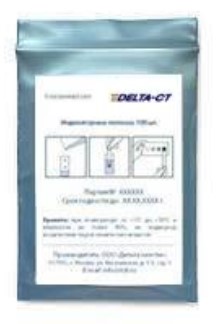Cases of detection of trichinosis continue in the Trans-Baikal Territory

08/29/2023, according to information from the State Veterinary Service of the Trans-Baikal Territory, during laboratory tests of wild boar meat for trichinosis at the State Institution "Trans-Baikal Regional Veterinary Laboratory" at the request of a private person who was treated to relatives, trichinella larvae were found. According to a private person, wild boar meat was obtained in the hunting grounds of the Shelopuginsky district.
Earlier, in early July, in the Kalarsky district of the Trans-Baikal Territory, 11 cases of trichinosis infection were registered among residents of the village of Kuanda.
During the epidemiological investigation, it was established that those sick with trichinosis consumed dried bear meat , which they were treated to by a local hunter. After eating meat, village residents complained of feeling unwell and sought medical help.
For information: trichinosis is a dangerous disease of humans and animals caused by small round worms (Trichinella). It is characterized by fever, severe manifestations of allergies and symptoms of damage to the striated muscles by the parasite larvae.
In nature, trichinosis is common among predators and omnivorous mammals (wild boars, badgers, raccoon dogs, brown and polar bears), and rodents.
Transmission of the disease is possible between pigs, dogs and cats when they eat the meat of sick animals; in nature - due to predation when eating animal corpses.
Trichinella are highly resistant to various methods of disinfection. Smoking and salting do not kill them. They remain alive even in fried or boiled meat. There are known cases of human infection from eating lard (with streaks of meat), ham, boiled sausage , frankfurters, dumplings, and kebabs. In the intestines of humans or animals, Trichinella larvae develop into sexually mature males and females, which in turn produce larvae that migrate through the lymphatic system into the blood and into the muscles.
A person most often becomes infected with trichinosis by eating undercooked meat from infected wild boar, bear, badger and pork.
The incubation, or latent, period of the disease ranges from 3 to 45 days, more often 10–20 days, after which characteristic clinical symptoms of the disease appear: fever, swelling of the eyelids, puffiness of the face, muscle pain, various skin rashes. In severe cases of the disease, damage to the myocardium, lungs, and central nervous system is possible.
In order not to become infected with trichinosis, veterinary and sanitary control of meat products from individual farms, meat of wild animals obtained by hunting (boars, brown and polar bears, badgers and others) is necessary. That is, such meat must be taken to the laboratory for research . If infestation is detected, the carcass must be burned.
Experts also warn that dogs and cats should not be fed unheated meat waste or hunting waste due to the possibility of their infection with trichinosis.
Experts insist that under-cooked, untested wild meat should never be consumed. It is also prohibited to purchase meat and meat products from private individuals selling in unidentified places.
The sale of pork meat, lard, and meat of wild animals that have not passed a veterinary and sanitary examination is strictly prohibited.
When consuming wild animal meat, experts recommend boiling it for at least 2.5–3 hours, with the thickness of the piece not exceeding 8 cm.



























































